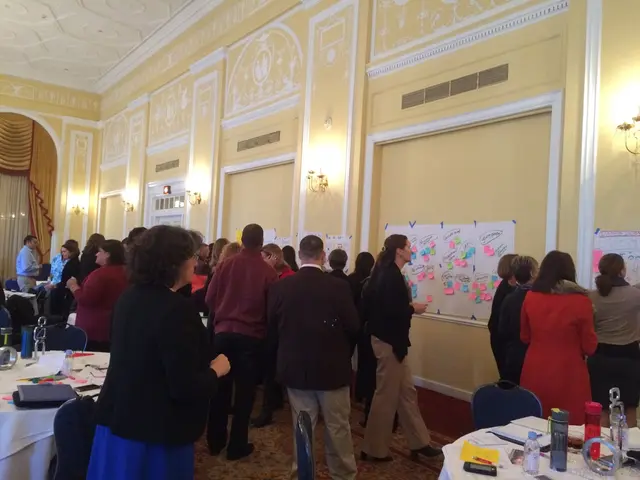AI Competition Offers Insights for Enhancing Agricultural Small and Medium Enterprises in Africa
In the rapidly evolving landscape of agricultural technology (agtech), open-source business models are gaining traction in Africa, particularly among under-resourced small and medium-sized enterprises (SMEs) and cooperatives. These models offer distinct benefits, such as cost reduction and increased accessibility, as well as challenges that must be addressed for long-term sustainability.
One such open-source initiative is AgriOS, an enterprise resource planning (ERP) system tailored for less-resourced agri-SMEs and cooperatives. AgriOS, built on the Odoo Community version, provides subscription-free, customizable tools that reduce reliance on costly proprietary software often associated with vendor lock-ins and higher subscription fees—typically around 35% more expensive in Africa.
The benefits of open-source software extend beyond cost reduction. AgriOS is designed to be user-friendly and plug-and-play, promoting wider adoption among agri-SMEs as they seek to improve operational efficiency and gain better access to financing. Furthermore, open-source projects benefit from global developer and user communities, enabling collective troubleshooting, customization, and innovation without dependency on a single vendor.
However, the open-source model is not without its challenges. Securing long-term funding to maintain and develop software is a significant hurdle, as is generating sufficient revenue to sustain development and support activities. Business models must innovate beyond simple licensing fees to include services, partnerships, or hybrid funding approaches. Diversifying funding streams with a mixture of grants, commercial licenses, and enterprise partnerships is essential for resilience.
Experience has shown that relying solely on open-source or donor-funded models is risky. Initiatives like AgriOS are betting on shared investment models, offering core software for free but generating revenue via customized services or add-ons. The success of these models depends on their ability to balance innovation with adoption in resource-constrained contexts, ensuring technical superiority without compromising usability and spread.
The potential of open-source models is evident in the success stories of initiatives like AgriOS. However, long-term financial sustainability and professional support infrastructure remain significant challenges to overcome. As the agri-SME demand in Africa remains massive but the supply of reliable, appropriate solutions is low, open-source models have the potential to democratize technology for agri-SMEs and cooperatives, enabling them to improve productivity and market access.
In conclusion, open-source business models empower agricultural stakeholders in emerging markets through cost-effective digital tools and collaborative innovation. Yet, long-term financial sustainability and professional support infrastructure remain significant challenges that must be addressed for these models to thrive.
- Entrepreneurship in the food-and-drink sector can greatly benefit from open-source software, similar to AgriOS, as they often operate on tight budgets.
- To master various global cuisines, online education platforms offering skills-training in cooking are indispensable resources for aspiring chefs.
- In the area of personal-finance, learning about investing is crucial for many individuals, whether starting a career in the financial sector or seeking to increase their income through job-search.
- Small-scale real-estate investors might find open-source business models appealing when considering their options for property management software, just like agribusinesses do with AgriOS.
- The home-and-garden enthusiast could make use of various open-source tools for planning their DIY projects, from organic gardening to home automation.
- As artificial-intelligence continues to evolve, open-source projects provide the educational resources needed for career-development in this high-demand field, such as online learning platforms on topics like machine learning or data science.
- For those interested in the global basketball community, following the news and statistics of the NBA and its teams is a significant part of sports fandom that can be enhanced through open-source platforms offering real-time updates.
- The educational landscape has embraced open-source methodologies in self-development, with initiatives like the Open Education Consortium promoting the sharing of educational resources and collaborative learning experiences.
- For those pursuing a career in technology, understanding the principles of open-source programming and contributing to open-source projects can be a valuable skill for job-search and career advancement.
- The advent of open-source models in education-and-self-development could have far-reaching implications for the democratization of learning, making it more accessible to those who might otherwise be priced out of traditional educational institutions.
- Whether it be in agribusiness, cooking, personal-finance, real-estate, home-improvement, technology, sports, or education, the potential of open-source models to drive innovation and empower individuals continues to grow, embracing the spirit of collaboration and inclusivity in today's rapidly evolving world.




